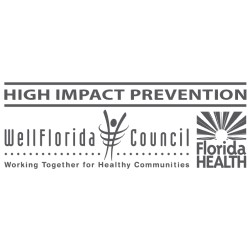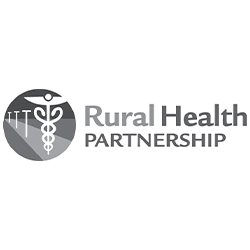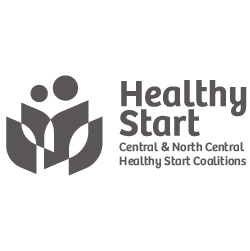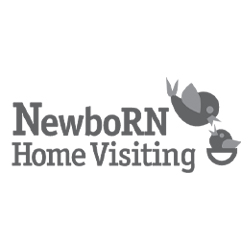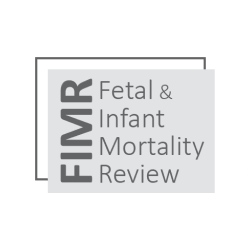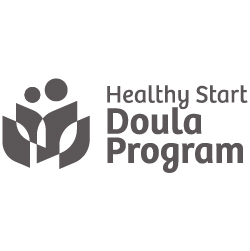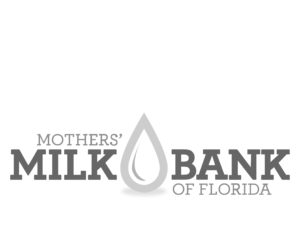Statewide research consortium receives $7.9 million for research to improve patient outcomes
Statewide research consortium receives $7.9 million for research to improve patient outcomes
One Florida Clinical Research Consortium
A statewide partnership among the University of Florida, University of Miami, Florida State University, health care systems, health plans, providers and patients was approved for a three-year, $7.9 million funding award by the Patient-Centered Outcomes Research Institute, or PCORI, to support patient-centered health care research throughout Florida and the country.
The funding award will create a clinical data research network that is part of a larger collaborative initiative called the National Patient-Centered Clinical Research Network, or PCORnet. PCORnet will enable researchers nationwide to conduct clinical research more quickly and less expensively than is now possible and will ensure that research focuses on the most important outcomes to patients.
The PCORI funding will designate the statewide partnership, called the OneFlorida Clinical Research Consortium, as one of 13 clinical data research networks nationwide, which are working to accelerate the translation of promising research findings into improved patient care. The consortium includes 22 hospitals, 914 clinical practices and 4,100 physicians, providing care for close to 40 percent of Floridians. The UF Clinical and Translational Science Institute is leading development of the consortium and will coordinate the funding award.
The 13 clinical data research networks are part of PCORnet, which links researchers, patient communities, clinicians and health systems in research partnerships that involve large volumes of health data. PCORnet studies focus on implementing best practices in patient care settings and identifying barriers to patients receiving optimal care.
OneFlorida initially will focus on high blood pressure, obesity and two rare genetic diseases, Duchenne muscular dystrophy and Phelan-McDermid syndrome. In a statewide survey, almost 75 percent of Floridians identified high blood pressure as their No. 1 health care concern, and clinicians routinely identify that condition as a critical issue for their patients.
“This PCORI funding will allow the consortium to help change how health care research is conducted in Florida,” said Betsy A. Shenkman, Ph.D., chair of the department of health outcomes and policy in the UF College of Medicine and one of two co-principal investigators for the funding award. “Research will become more relevant to patients due to their involvement in the process, and it will be more efficient, since it will be conducted in health care settings where the research results eventually will be implemented.”
This funding award supports staffing and the creation and maintenance of new technology and programs to facilitate multiple studies simultaneously as well as data access across the network. These studies will be conducted among diverse patient populations in a variety of clinical settings throughout Florida, making research relevant to real-world situations.
“The OneFlorida vision allows us to bring the health priorities of Floridians to the national research arena, which is being reshaped in significant ways as national networks like PCORnet and the National Institutes of Health’s Clinical and Translational Science Award program catalyze collaboration at a scale not possible before,” said David Nelson, M.D., director of the UF Clinical and Translational Science Institute and co-chair of the OneFlorida Clinical Research Consortium steering committee.
In many ways, Florida’s older, more diverse population mirrors future U.S. demographics, so research conducted in Florida can serve as a model for researchers nationwide looking to study the future health care needs of the nation and to examine health disparities across ethnicities and socioeconomic status. As the two Clinical and Translational Science Award hubs in the state, UF and the University of Miami Miller School of Medicine have been collaborating since 2012 to integrate and expand statewide clinical research infrastructure.
“Our institution has a long history of focusing on addressing health disparities in the state and locally, and we are excited to continue to grow that legacy as part of the statewide consortium,” said Nick Tsinoremas, Ph.D., University of Miami Miller School’s director of biomedical informatics for the Clinical and Translational Science Institute, director of the Center for Computational Science and UM’s principal investigator for PCORnet.
The Florida consortium also will contribute to the national network by allowing researchers access to more than 9 million deidentified and secure health care records through the OneFlorida Data Trust, so they can locate individuals who wish to participate in research and conduct studies more efficiently.
“This funding award will enable us to work together statewide to build the information infrastructure required to improve health, health care and health policy,” said William Hogan, M.D., M.S., director of biomedical informatics at the UF Clinical and Translational Science Institute and co-principal investigator. “That will entail sharing electronic health data among partners in a secure way, so researchers can study rare diseases, improve patient care and discover new research questions.”
The network’s patient focus allows the public increased access to the research process. Several community members gave feedback on the funded proposal, including Shirley Bloodworth, a member of the UF Clinical and Translational Science Institute’s Citizen Scientist Program.
“I am intrigued by the need for people to better understand and to have better health care, and if it’s going to be supplied by big data, citizen scientists can be instrumental in that,” said Bloodworth, who participated in the workgroup on hypertension. “I hope to provide researchers with the general public’s perspective on what our most pressing needs are.”
The funding award will facilitate greater involvement with clinicians across the state, who can work with researchers to implement quality improvement projects and research in their clinics and practices.
“The consortium is excited about engaging in PCORI’s vision for health care research, which shifts the conversation toward research that is on the ground with clinicians and patients,” said Myra Hurt, senior associate dean for research and graduate programs at the FSU College of Medicine, which teamed up with the UF Clinical and Translational Science Institute in 2010 to develop new capabilities for community-based clinical research throughout Florida. “FSU brings to OneFlorida a unique model for medical education, where future care providers are placed in clinical settings throughout our state. We believe that the strong clinician partnerships developed through medical education will extend to generating research that is patient-focused, efficient and meaningful for everyday health care practice.”
The funding award to the OneFlorida Clinical Research Consortium has been approved by PCORI’s Board pending completion of a business and programmatic review by PCORI staff and negotiation of a formal award contract. PCORI is an independent, nonprofit organization authorized by Congress in 2010 to fund research that will provide patients, their caregivers and clinicians with the evidence-based information they need to make better-informed health care decisions. PCORI is committed to continuously seeking input from a broad range of stakeholders to guide its work. More information is available at www.pcori.org.
Collaborative partnerships for PCORnet
The consortium is building upon several years of collaborative research across the state, including existing partnerships between the state’s two clinical and translational science institutes at the University of Florida and the University of Miami and a longstanding research initiative between Florida State University and UF. The consortium’s partners for the PCORnet funding award include:
University of Florida and UF Health.
University of Miami and its health system.
Florida State University and their affiliates, including Tallahassee Memorial HealthCare, Capital Health Plan, Community Health Centers Inc., and Healthcare Network of Southwest Florida.
The University of Florida and University of Miami Clinical and Translational Science Institutes.
Florida Hospital.
Orlando Health.
Health Choice Network.
Bond Community Health Center Inc.
JaxHERO.
Miami Children’s Health System.
The Florida Agency for Health Care Administration.
WellFlorida Council.
Consortium partnerships with patient-centered networks
The OneFlorida Clinical Research Consortium has also partnered with two patient-powered research networks, the DuchenneConnect Patient-Report Registry Infrastructure Project, which collects longitudinal patient-reported data on two forms of muscular dystrophy, and the Phelan-McDermid Syndrome Data Network, which aims to accelerate translational efforts related to Phelan-McDermid syndrome, a rare genetic disorder that is often linked to speech delays and autism-like symptoms.
Read this article online
Back to News page
